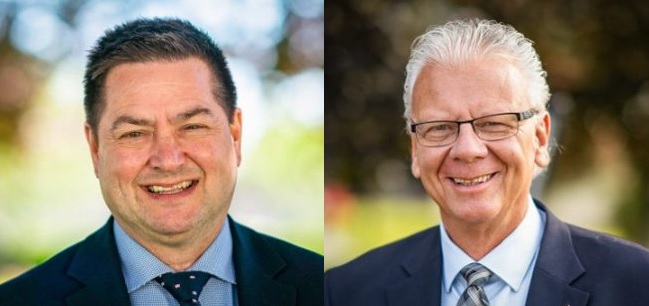Columbia River-Revelstoke MLA Doug Clovechok and Kootenay East MLA Tom Shypitka provided their criticism on the 2021 Provincial budget.
Clovechok said the 2021 budget proposal felt similar to last year’s.
“Overall it’s disappointing. I think when we get into the estimates process it’s going to be interesting when we drill down and get some understanding. But at the first blush on this thing, it’s a lack of vision and it’s more or less a recycled budget with a few tweaks here and there,” said Clovechok.
Cholvechok added that the implications for the local economy might not help as much as the provincial NDP tout.
“If you look at it through a local perspective, through the lens of Columbia River-Revelstoke, you see a reduction in the forest sector, you see a reduction in the mining sector,” explained Clovechok. “In terms of the tourism sector, there is some money coming, but it’s not definitive. This is the hardest hit industry by the pandemic, yet there’s no definitive process to get it out of there.”
The B.C. Government plans to develop 9,000 new homes for middle-income families with $2 billion in development financing. For Shypitka, the Province’s plan to make life more affordable is not realistic.
“We saw this government in the past with how they roll out these grants, and it’s very restrictive. We had $100-million in the B.C. Recovery Grant and only about $20-million of it was put out because it was so restrictive, so I don’t have a lot of faith in government approaching affordability,” said Shypitka.
The Kootenay East MLA spoke of his criticisms of the B.C. Government’s plan with affordable child care.
“The NDP campaigned on $10 a day universal daycare across the province. Well, they only have about 2,000 of those spaces online right now out of over 100,000 they’re going to need. In this budget, they don’t talk about $10 daycare across the board, they just talk about doubling the spaces that they have now,” explained Shypitka. “They’ve stepped back from the rhetoric they put out in 2017 and it’s a little disappointing.”
Shypitka was critical of the Province’s planned budget allocation for jobs, which he said does not have enough support for private-sector workers.
“There are about 60,000 government jobs that will see an increase. So Government is going to increase, but there are about 40,000 unemployed people in the private sector that need to be addressed,” said Shypitka.
Clovechok expressed concern over the expected deficit. B.C. forecasts a deficit of $9.7 billion in 2021-22, $5.5 billion in 2022-23 and $4.3 billion in 2023-24.
“We understand that during a pandemic, there’s going to be deficits, but there is no exit strategy that is apparent yet. So, how are we going to get ourselves out of debt?” explained Clovechok.
Shypitka echoed the sentiment.
“Nobody is blaming the government for bringing on a deficit, that’s for sure. Unfortunately, it’s how you spend in the deficit that’s up for critical conversation,” said Shypitka.
Shypitka spoke of what he would prefer the Province focus on to help tackle the expected deficit. He feels that B.C. should make use of its natural resources.
“The advantage that British Columbia has right now in getting our product to market is that there’s a demand and we have the resources, and yet, our government fails to recognize this. Our permitting process has been slowed and delayed, we have seen this government use every tool in the toolbox to shut down our gan and our oil,” explained Shypitka. “If we’re going to be looking at supporting these government services, we need revenue to support it. With the deficit we’re seeing right now, we have nothing to supplement revenue other than more taxes.”
That said, Clovechok felt the budget did have some positive aspects.
“After about five years of these guys being in government, they’re finally putting money into mental health. Mental health was a critical issue before the pandemic, but I think it’s going to be even more prevalent post-pandemic,” said Clovechok. “Reconciliation with First Nations people, there’s some movement towards that, and I think that’s a really good thing. For Columbia River-Revelstoke, connectivity is a huge issue, it always has been. Columbia Basin Trust is working with our communities on that issue, and there’s some money in the budget for connectivity.”
More: B.C. tables 2021 budget (April 20, 2021)




